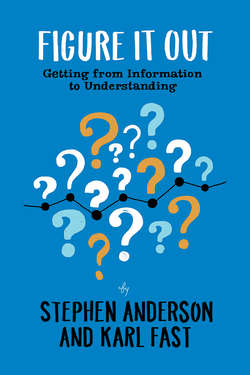Читать книгу Figure It Out - Stephen P. Anderson - Страница 45
На сайте Литреса книга снята с продажи.
How Metaphors Shape Associations
ОглавлениеI (Stephen) still recall how late-night comedian David Letterman described the Mach3 razor (back when triple blades were a new thing):
“It’s like shaving with the back of a spoon.”
Perhaps this was paid placement? Regardless, this was, for me at least, a powerfully persuasive and memorable statement. Nine simple words said more to me than a 30-second commercial or full-page ad would ever communicate. But more than the words, it was what the words evoked. I don’t know of anyone who loves to shave their face. It’s not fun. It burns. We get cuts. But running the back of a spoon across my face ... That’s ... Delightful. Smooth. Perhaps cold. Not at all unsettling. Fine razor cuts and itchy skin were the farthest things from my mind when I heard Letterman describe this razor like the back of a spoon. And now my brain had formed an emotionally charged connection: I understood the (purported) feeling of this innovative new razor by way of some other, quite pleasant association.
“Reach for the stars.”
“We’ll beat the competition.”
“It’s like shaving with the back of a spoon.”
From the poetry of advertising to the well-crafted political speech, a careful choice of words can win hearts and change minds. It can be an explicit association—like shaving with a spoon—or something more suggestive.
Consider what is now a near-ubiquitous phrase in software development: technical debt (or tech debt for short). This metaphor was coined by Ward Cunningham to explain the refactoring work that programmers so often must contend with. It’s one thing to argue that cutting corners—to deliver results more quickly in the near term—will cost more in the long run. It’s quite another thing to link that rational argument with something we all know and feel emotionally: the dangers of going into financial debt. Whether we’re in debt or not, it’s commonly known that debt is a dangerous thing. You shouldn’t knowingly enter into debt unless you have a plan to get out of debt and you’re fully aware of what it will cost you. This phrase technical debt is so powerful, we’ve seen it picked up by other product groups to draw attention to analogous situations: design debt, product debt, conceptual debt.
A very subtle association can certainly change how people think and feel about something. Spoons. Debt. But can these associations change behavior?
